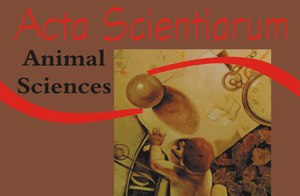ABSTRACT.
Wistar rats were treated as Group A: Control; Group B: Lead (50 mg kg-1 b wt.); Group C: Lead (50 mg kg-1 b wt.) and jamun seed extract (JSE) (200 mg kg-1 b wt.); Group D: Lead (50 mg kg-1 b wt.) and orange peel extract (OPE) (200 mg kg-1 b wt.); Group E: OPE (200 mg kg-1 b wt.) and Group F: JSE (200 mg kg-1 b wt.). Serum urea, creatinine and serum uric acid levels were analyzed on days 7 and 14. Rats from Group B showed increased serum creatinine from days 7 to 14. Creatinine level decreased in group C and group D at days 7 and 14 as compared to group B. Increased serum urea was recorded in group B rats from 7 days. Rat from group C or group D showed decreased serum urea after days 7 day and 14 as compared to Group B. Lead exposure to rats provoked increased serum uric acid on days 7 and 14. Uric acid decreased in group C and group D on days 7 and 14 as compared to rats of group B. No alteration in creatinine, urea and uric acid level was seen in OPE and JSE treated rats at days 7 and 14.
Keywords:
heavy metals; uric acid; creatinine; urea; nephrotoxic; phytochemicals

 Jamun (Syzygium cumini) seed and orange (Citrus sinensis) peel extracts ameliorates toxic effects of lead on kidney biomarkers in rats
Jamun (Syzygium cumini) seed and orange (Citrus sinensis) peel extracts ameliorates toxic effects of lead on kidney biomarkers in rats Thumbnail
Thumbnail
 Thumbnail
Thumbnail
 Thumbnail
Thumbnail


